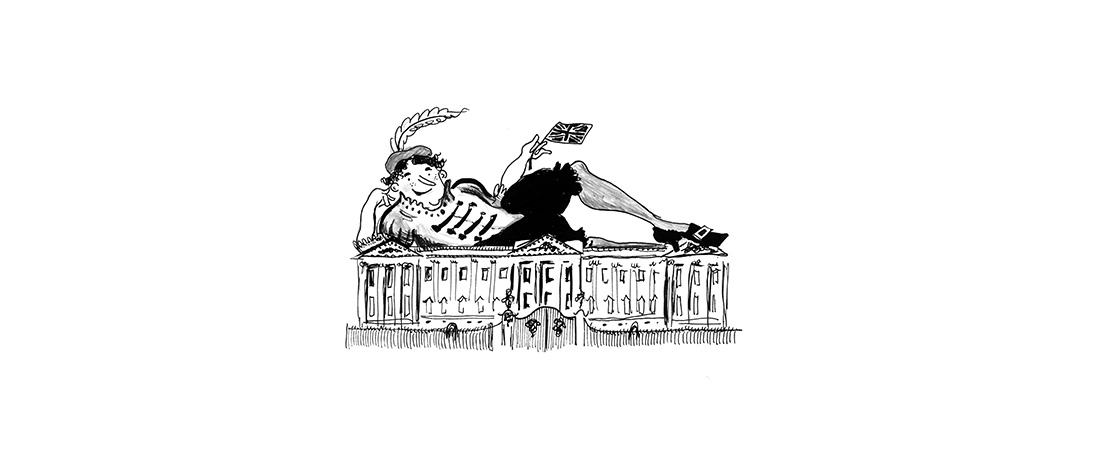In early 2018, Britain was in the throes of peak Meghan and Harry and all its accompanying storms. As their wedding approached, rumours abounded, including one regarding a rift between the Princes, which turned out to be true. Then came Megxit, the mother of all storms for the British monarchy. Meanwhile, the Duke and Duchess of Cambridge, rather than receding into the background or becoming targets of abuse by the press and the public, were thriving.
Contrary to what might have been expected, William and Kate’s popularity went stratospheric. The couple were everywhere, doing all the right things. One day they were flying to Balmoral on a budget airline, the next they were stirring a Christmas pudding on telly with the adorable Mary Berry. The Cambridges’ Instagram account abounded with intimate photographs of their children at home “taken by the Duchess”. Meanwhile, Harry and Meghan were in the papers for flying a private jet to Elton John’s mansion in Nice. Some might say Will and Kate were on a bit of a roll, and they have been ever since, leading one commentator to describe them as “the royal family’s greatest PR weapon”.
It is only recently that we have started to learn more about the man who was advising the Cambridges during this tense and difficult period – a certain Simon Case, who took over as private secretary to Prince William just two months before the wedding of the Duke and Duchess of Sussex, and who has just been appointed the new head of the civil service. He is said to have streamlined the Duke and Duchess’s operation and media presence, and been instrumental in raising William’s profile as statesman. Just 41 years old, he is now the youngest person to have led the civil service in the organisation’s century-long history, and was personally poached from Kensington Palace by Boris Johnson.
Case has been tasked with restoring order to the civil service and to government as part of Dominic Cummings’s plans for reform. A divisive figure, he has been described as “patriotic to his core”, a “passionate unionist”, “pompous”, “media savvy”, “a bit of a gossip” and a “Tory” and has got himself a reputation for not subscribing to the civil service pro-EU, pro-bureaucracy “groupthink” and for being as sympathetic to Leavers as he is to Remainers. Before working for Prince William, he was director-general for the UK-EU Partnership under Theresa May, but was supposedly pushed out for clashing with Olly Robbins over the Irish backstop and other issues. His appointment has, unsurprisingly, raised eyebrows.
“Many people will have interpreted the timing of his move to Kensington Palace as a statement in itself about the direction of Brexit under Theresa May,” explains Radomir Tylecote, a former adviser to HM Treasury who is now director of the think tank the Good Governance Project. Having worked in the heart of the treasury, where civil servants “openly wept” at the referendum result, Tylecote says Case is good news for a much-needed culture change, which puts elected governments, not civil servants, back in charge of the country.
“The appointment is interesting because he is someone whose work in government and for Prince William suggests that he understands that if institutions and their leaders are to maintain legitimacy and public support – which, in the end, is essential for a democracy to function – they have to do their job within a democracy, and not try to take powers that aren’t theirs.” Incidentally, Case’s PhD thesis, titled “The Joint Intelligence Committee and the German Question, 1947-61”, is notable for its exploration of the mechanics and difficult implications of European integration.
“I think Case is aware that public opinion hasn’t so much turned against institutions and their figureheads as wanting them to get back to doing their specific jobs, their duties. We have seen a lot of that dignity and straightforwardness in Prince William in the last couple of years especially,” Tylecote adds.
He cites some advice we assume Case gave Prince William that reinforces Case’s approach, which is to understand that the contract between the monarchy and the people, and therefore the government and the people, means it is not their job to tell us what to think. “The comparison is striking: between Prince Harry suggesting that the Commonwealth needs to do more ‘acknowledging’ of past racism and, a few weeks later, Prince William’s leading role in VJ Day 75, when he acknowledged its fight against Nazi Germany and Imperial Japan.”
The appointment of Case is exciting. We now have to wait and see if he will be given the berth to actually make a difference.


